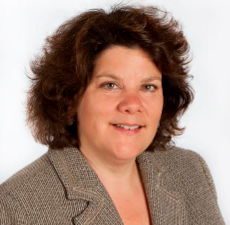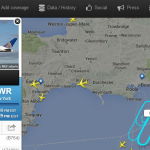This in from the Country Land and Business Association (CLA) in their own words. Ed
The CLA represents almost 200 landowners, farmers and rural businesses on the Island.
 Mrs Walters, who is CLA Director Isle of Wight and lives in Brook, explains:
Mrs Walters, who is CLA Director Isle of Wight and lives in Brook, explains:
“Transport connections to the mainland are a vital lifeline for rural businesses, not least for farmers who must be able to export produce, and for the rural tourism industry which needs visitors to keep coming to the Island.
“However ferry services have suffered reductions in frequency and increases in price; difficulties with our links to the mainland are significant and could cause major setback for the Island economy in 2015 with dramatic consequences for rural communities.
“The CLA is urging the ferry companies to work with Andrew Turner MP, local authorities, Solent LEP and local businesses, both urban and rural, to find a positive way forward for the island and its economy.”
Mrs Walters continues:
“After a second Government consultation, an Order was made in 2014 to include the Isle of Wight within the Marine and Coastal Access Act. The Isle of Wight already has very good coastal access including a coastal path around 67 miles long which is signed and promoted as such for Island walkers and visitors.
“The long and unwarranted coastal access process will be a huge waste of taxpayers’ money and a waste of Natural England’s time and resources. We are calling for Defra and Natural England to work closely with the CLA and with Isle of Wight land managers to streamline processes and reduce waste from this point forwards.”
Renewable energy is another priority for rural communities on the Island highlighted by Mrs Walters:
“The recent Government review on the RHI (Renewable Heat Incentive) levels, and the sustainability criteria to be imposed, caused uncertainty for those businesses looking to invest the considerable sums required for renewable technology schemes. In addition there is significant restriction on the capacity in the grid for exporting electricity produced from the Island. Such limitations will be damaging, both for the Island’s economy and for the valued Eco-Island status.
“We hope to see these issues recognised in the campaigns of candidates wishing to represent the Isle of Wight following the general election in May.”




